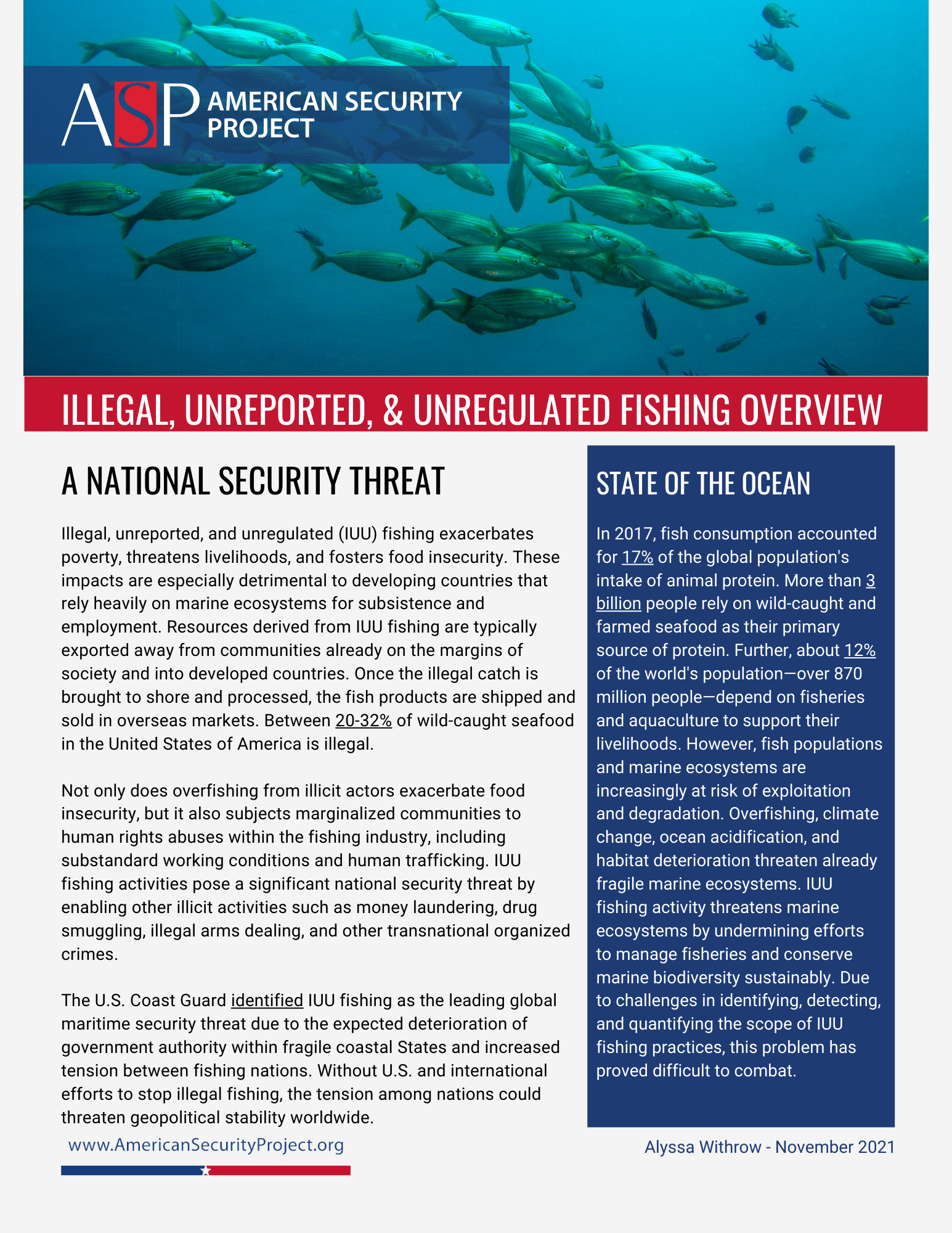
Briefing Note – Illegal, Unreported, and Unregulated Fishing Overview
Illegal, unreported, and unregulated (IUU) fishing exacerbates poverty, threatens livelihoods, and fosters food insecurity. These impacts are especially detrimental to developing countries that rely heavily on marine ecosystems for subsistence and employment. Resources derived from IUU fishing are typically exported away from communities already on the margins of society and into developed countries. Once the illegal catch is brought to shore and processed, the fish products are shipped and sold in overseas markets. Between 20-32% of wild-caught seafood in the United States of America is illegal.
Not only does overfishing from illicit actors exacerbate food insecurity, but it also subjects marginalized communities to human rights abuses within the fishing industry, including substandard working conditions and human trafficking. IUU fishing activities pose a significant national security threat by enabling other illicit activities such as money laundering, drug smuggling, illegal arms dealing, and other transnational organized crimes.
The U.S. Coast Guard identified IUU fishing as the leading global maritime security threat due to the expected deterioration of government authority within fragile coastal States and increased tension between fishing nations. Without U.S. and international efforts to stop illegal fishing, the tension among nations could threaten geopolitical stability worldwide.
Download
Briefing Note – Illegal, Un… by The American Security Project





